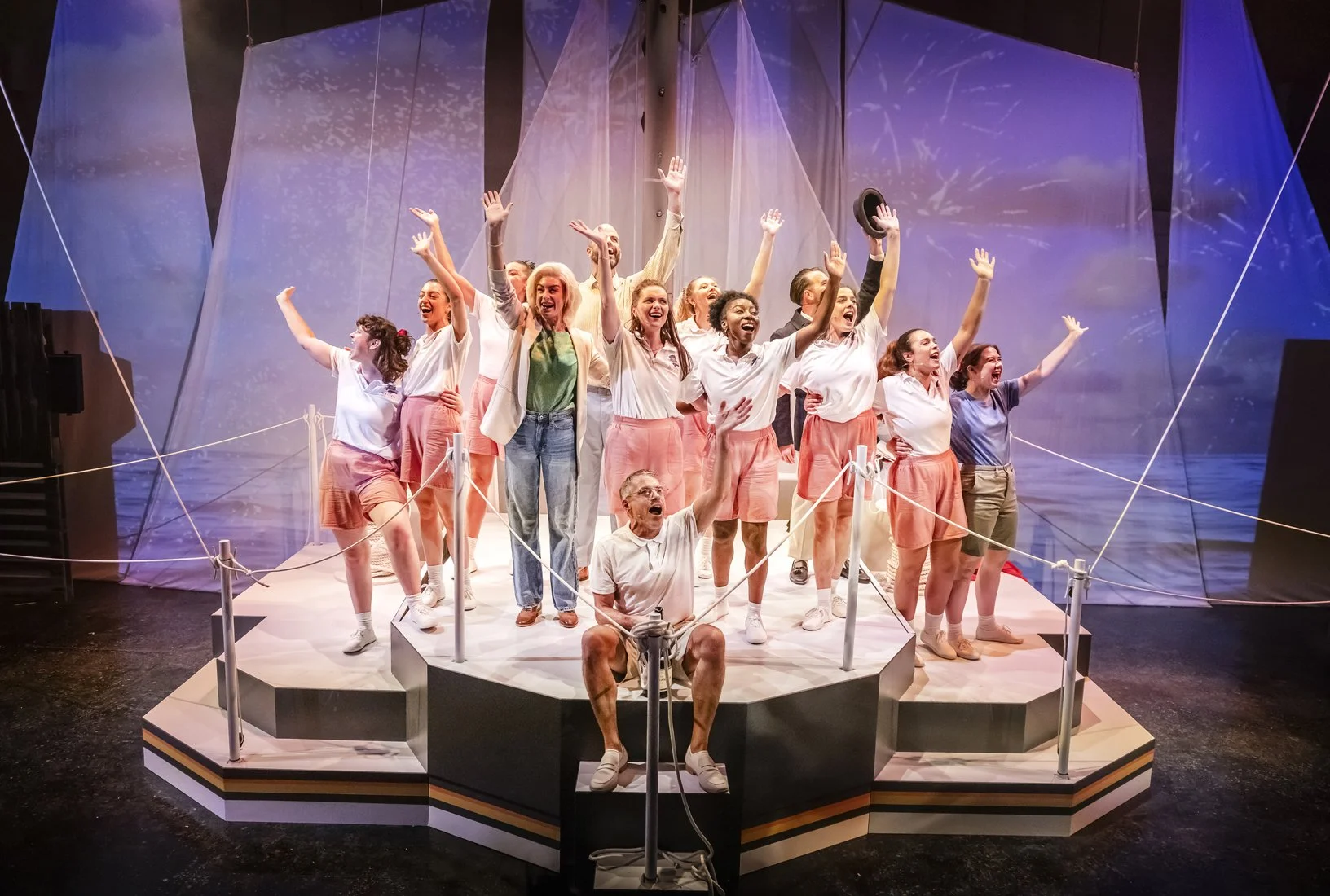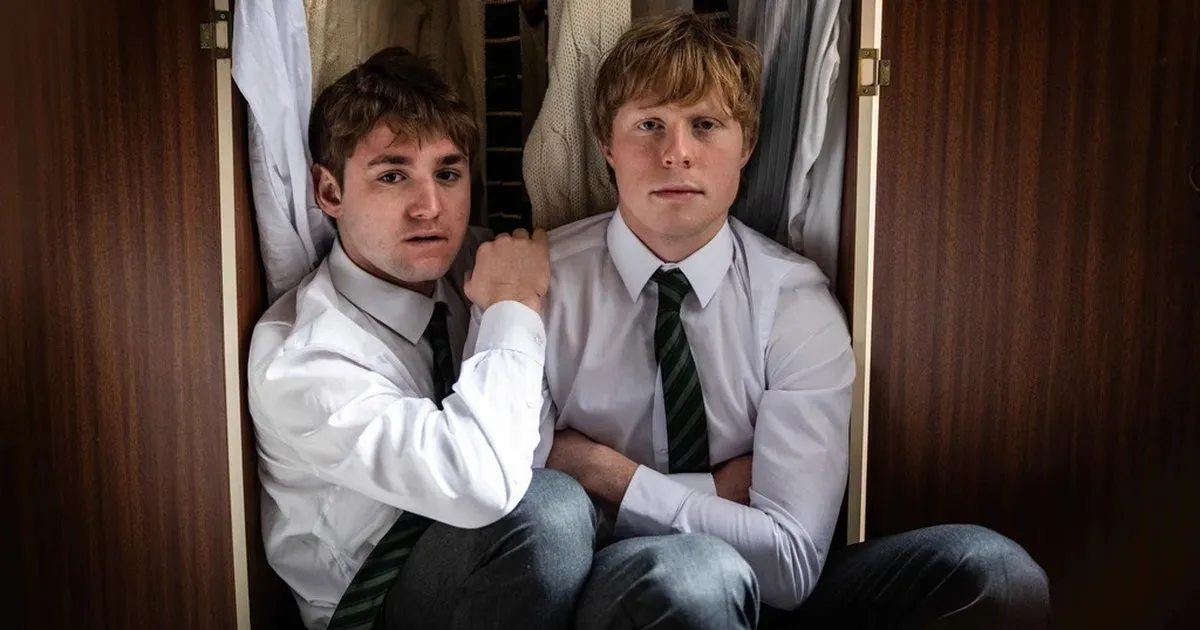Follow The Signs, Soho Theatre Review
Chris Fonseca in Follow the Signs. Photo by Charlie Swinbourne
Written by Danai for Theatre and Tonic
Disclaimer: Gifted tickets in return for an honest review. All opinions are our own
This four-performer show starts with a party—not just because the cast is already dancing when the audience enters, but because the central characters, Chris and Raphi, played by Chris Fonseca and Raphaella Julien, first meet while partying. In the middle of a club, they discover they are both deaf, communicate through signing, and share a love for hip-hop and dancing. A friendship begins but also Follow the Signs, a performance that blends rapping, signing, and vibrant dance with personal, autobiographical elements that make this narrative a sincere and authentic one.
British Sign Language (BSL) has a pivotal role, narrating Chris’s story and highlighting the challenges he has faced from the cochlear implant surgery and school bullying to the insecurities born when perceived as ‘different’. Yet, it also reflects the hope he found in meeting Raphi. Writers Chris Fonseca and Harry Jardine do not just explore Chris’s deafness but also his Black identity- ‘Deaf and Black’. This exploration includes lots of powerful rapping by Jardine, lending his voice to Chris, while Fleur Angevine Rooth does the same for Julien. Rooth showcases her acting skills, seamlessly transitioning between multiple roles throughout the show. One standout moment is the portrayal of Chris's memory of his speech therapist, whom he recalls as behaving like a clown. In contrast, Raphi’s experience with a much kinder therapist highlights their journeys’ differences.
There are no words to fully capture how outstanding Raphaella Julien is in this role. Her acting is phenomenal, and her movement, dance, and physicality make her stage presence captivating. The audience simply wants more as Julien becomes living proof that expression can go beyond conventional, verbal means. While Raphi’s journey feels more like a parallel story rather than the focus, the notion of her having a smoother path is skilfully challenged towards the end, reminding the viewers that individual struggles are not always comparable. Yet, there’s one detail that resonates on a different level.
Chris clearly stated earlier on that his mum could not fully learn BSL because she couldn’t pay for it. Sure, all struggles are equally important but here, there is an element that would be lovely to see explored more: Class. Maybe it was a conscious decision not to insist as already the time was not enough for this show to unpack everything it touched upon. Yet, class is so often neglected within the arts and theatre that even this reference really hit a spot and for a second felt like a missed opportunity.
The body sequences accompanying the cochlear implant scenes of the two protagonists weaved storytelling of how this process feels, something that people without hearing implants cannot be aware of. The movie The Sound of Metal (2019) came to mind as it had managed to get a broad audience into this new world and its challenges, but here the fact that bodies were used gave a more intimate and powerful effect same as all the choreographies of Chris Fonseca.
A powerful moment of the show is the silence after the surgery scene. In a performance so loud both in terms of music but also in terms of meaning, this contrast had an impact. It is true that some things were told rather than performed and maybe the show was too short to capture everything it implied but after Chris’s final confession and realisation that he is not ‘deaf and black’, but ‘black and deaf’, Raphi urges him to see that he is not angry. He is free. The signing of ‘freedom’ stuck in my head as it starts by bringing the hands close to the chest and I left the room thinking that this is the kind of performance that comes really from the heart and is as it should be: daring, fresh, fearless and most importantly free.
At Soho Theatre until 12 October 2024.
★ ★ ★ ★














